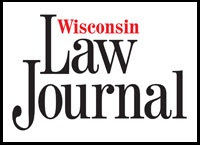Click the link to listen to my latest radio interview -- this one on Wisconsin Public Radio's "Central Time." In it, we discuss my new book, Convicting Avery (Prometheus books, 2017), along with several aspects of Wisconsin's criminal justice system including our unconstitutionally low burden of proof, police interrogation tactics, and false confessions. One of the callers, a former juror, raised a great point about Wisconsin's jury instruction on reasonable doubt. Paraphrasing, he said: "The judge told us 'not to search for doubt.' I had doubts about the case, but they weren't things that the lawyers had brought up. So was I not supposed to consider those unless the attorneys raised them first?" Finally, for more on my research and controlled studies on Wisconsin's unconstitutional jury instruction on the burden of proof, visit my articles page of CicchiniLaw.com.
Wednesday, April 19, 2017
Wednesday, April 5, 2017
Anything you say (or don't say) can be used against you
We all know that people confess to the police because they think they're helping themselves. Sometimes these confessions are true and sometimes they're false, but in both cases people confess because they are (wrongly) convinced that doing so is in their best interest. For example, the police often minimize the event by saying, "If you admit your involvement now, everything will be okay and it's not a big deal; but if you keep lying to us by denying it, then you'll really be in trouble." Or, sometimes the police present the classic false dichotomy: "You have only two choices: (1) You did this, you meant to do it, you're a monster, and you're going to prison for the rest of your life; or (2) You didn't mean to do this, so-and-so is really the one who did it, you're involvement was minimal, and if you help us out we'll take care of you and you'll be just fine."
Tuesday, April 4, 2017
Convicting Avery: The Bizarre Laws and Broken System behind "Making a Murderer" (Prometheus Books)
My new book, Convicting Avery, is now available. You can find the book at retailers everywhere, including at amazon. The book has received several positive reviews, including those from the New York Journal of Books, Publishers Weekly, Kirkus, and Blog Critics. Enjoy!
Saturday, April 1, 2017
Thank the Marquette Warriors for March Madness
Only fifteen teams have won multiple national titles. In this year’s Final Four, Oregon
will be going for its second, North Carolina
for its sixth. But March wasn't always Mad, and the tournament wasn't always
“the tournament.” When Oregon
won its first title in 1939, the Big Dance was anything but: it was an
eight-team field played in a tiny gym with only a couple thousand fans in
attendance. And for many decades, the NIT was the more prestigious
tournament. The NIT fielded more teams and better teams, and it was
played in a high-profile venue at Madison
Square Garden New
York .
Subscribe to:
Posts (Atom)

